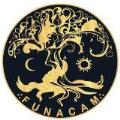 FUNACAN
Fundación Acción y Cambio
FUNACAN
Fundación Acción y Cambio


En FUNACAM estamos convencidos que la generación de acciones productivas colectivas, que posean una visión de desarrollo e innovación, lograrán cambios sociales significativos que es lo que tanto necesitamos en el país.
¿QUIÉNES SOMOS?
FUNACAM es una organización sin fines de lucro con el claro objetivo de generar proyectos que promuevan el desarrollo social, el mejoramiento individual y sobre todo bridar alivio a sectores vulnerables desprotegidos.
¿QUÉ HACEMOS?
Desarrollamos proyectos que sirvan para la difusión del conocimiento, apoyo al emprendimiento y atención a sectores menos atendidos que no son visibilizados socialmente.
¿QUÉ BUSCAMOS?
Conseguir involucrar al sector privado y al público, en actividades de desarrollo para la sustentabilidad, mediante el impulso de proyectos en bien de la sociedad, que permita mejorar la realidad.
¿QUÉ PROMOVEMOS?
Apoyo a la generación de iniciativas que fomenten la participación y colaboración (institucional e individual), en torno al desarrollo sustentable de la población.


The range of research projects and initiatives at ChemE is remarkable for its sheer breadth and depth. Though there are hundreds of individual research projects going on at any one time, they all fall into at least one of nine research areas.
These areas represent key domains in which chemical engineers can apply their skills and knowledge, with the goal of achieving and advancing innovative breakthroughs that have the potential to make a significant impact on our world.
Advancements in computer science found applications designing. Essentially, chemical engineers design large-scale processes that convert chemicals, raw materials, living cells, microorganisms and energy into useful forms and products.
Creditable Integrity
Value talent cultivation and encourage creative innovation
Effective Team Work
Pursue organizational solidity and press on effective team-work
Quality Assurance
Ensure first and best of product quality and service

The journal provides an international medium for the publication of theoretical and experimental studies and reviews related to the electronic, electrochemical, ionic, magnetic, optical, and biosensing properties of solid state materials in bulk, thin film and particulate forms.
Papers dealing with synthesis, processing, characterization, structure, physical properties and computational aspects of nano-crystalline, crystalline, amorphous and glassy forms of ceramics, semiconductors, layered insertion compounds, low-dimensional compounds and systems, fast-ion conductors, polymers and dielectrics are viewed as suitable for publication. Articles focused on nano-structured aspects of these advanced solid-state materials will also be considered suitable.
Creditable Integrity
Value talent cultivation and encourage creative innovation
Effective Team Work
Pursue organizational solidity and press on effective team-work
Quality Assurance
Ensure first and best of product quality and service



Mechanical engineering emerged as a field during the industrial revolution in Europe in the 18th century; however, its development can be traced back several thousand years around the world. Mechanical engineering science emerged in the 19th century as a result of developments in the field of physics.
Mechanical engineering overlaps with aerospace engineering, metallurgical engineering, civil engineering, electrical engineering, manufacturing engineering, chemical engineering, industrial engineering, and other engineering disciplines to varying amounts. Mechanical engineers may also work in the field of biomedical engineering, specifically with biomechanics, transport phenomena, biomechatronics, bionanotechnology, and modeling of biological systems.
Creditable Integrity
Value talent cultivation and encourage creative innovation
Effective Team Work
Pursue organizational solidity and press on effective team-work
Quality Assurance
Ensure first and best of product quality and service

The journal provides an international medium for the publication of theoretical and experimental studies and reviews related to the electronic, electrochemical, ionic, magnetic, optical, and biosensing properties of solid state materials in bulk, thin film and particulate forms.
Papers dealing with synthesis, processing, characterization, structure, physical properties and computational aspects of nano-crystalline, crystalline, amorphous and glassy forms of ceramics, semiconductors, layered insertion compounds, low-dimensional compounds and systems, fast-ion conductors, polymers and dielectrics are viewed as suitable for publication. Articles focused on nano-structured aspects of these advanced solid-state materials will also be considered suitable.
Creditable Integrity
Value talent cultivation and encourage creative innovation
Effective Team Work
Pursue organizational solidity and press on effective team-work
Quality Assurance
Ensure first and best of product quality and service

The journal provides an international medium for the publication of theoretical and experimental studies and reviews related to the electronic, electrochemical, ionic, magnetic, optical, and biosensing properties of solid state materials in bulk, thin film and particulate forms.
Papers dealing with synthesis, processing, characterization, structure, physical properties and computational aspects of nano-crystalline, crystalline, amorphous and glassy forms of ceramics, semiconductors, layered insertion compounds, low-dimensional compounds and systems, fast-ion conductors, polymers and dielectrics are viewed as suitable for publication. Articles focused on nano-structured aspects of these advanced solid-state materials will also be considered suitable.
Creditable Integrity
Value talent cultivation and encourage creative innovation
Effective Team Work
Pursue organizational solidity and press on effective team-work
Quality Assurance
Ensure first and best of product quality and service